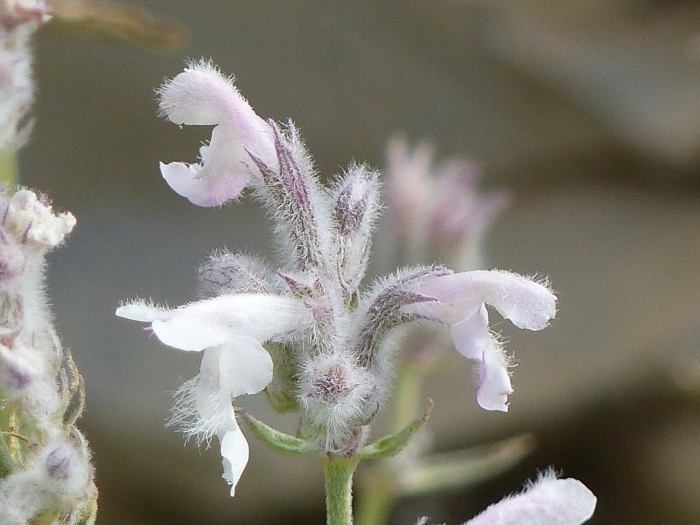Lesser Catmint
(Nepeta nepetella)
Lesser Catmint (Nepeta nepetella)
/
/

francois tissot
CC BY-SA 4.0
Image By:
francois tissot
Recorded By:
Copyright:
CC BY-SA 4.0
Copyright Notice:
Photo by: francois tissot | License Type: CC BY-SA 4.0 | License URL: https://creativecommons.org/licenses/by-sa/4.0/ | Attribution: francois tissot (cc-by-sa) | Rights Holder: francois tissot | Publisher: PlantNet | Date Created: 2020-08-03T09:52:36Z | Title: Nepeta nepetella L.: flower | Notes: |






















Estimated Native Range
Summary
Nepeta nepetella, commonly known as Lesser Catmint, is a deciduous perennial herb native to rocky slopes and scrublands in the Western Mediterranean region, including Spain, France, Italy, and North Africa. It typically reaches a height of 40–80 centimeters (16–31 inches). Lesser Catmint has a bushy, clump-forming habit with aromatic, green, crenate (scalloped-edged) leaves. During the summer months, it produces showy spikes of bluish-violet flowers that are small yet quite attractive, each spike measuring approximately 1–8 centimeters (0.39–3.15 inches) long. The flowers are highly appealing to bees and butterflies, making it a beneficial plant for pollinator gardens.
Lesser Catmint is valued for its drought tolerance and ease of maintenance, making it a suitable choice for xeriscaping and Mediterranean-style gardens. It is often used in border plantings, rock gardens, and as ground cover. This herb thrives in full sun but can tolerate part shade, and it prefers well-drained soils. While it requires medium amounts of water, once established, it can withstand dry conditions. Lesser Catmint is not known for aggressive roots or significant disease problems, although it can occasionally suffer from root rot if overwatered. It is also deer-resistant, which is an added benefit in areas with high deer populations.CC BY-SA 4.0
Lesser Catmint is valued for its drought tolerance and ease of maintenance, making it a suitable choice for xeriscaping and Mediterranean-style gardens. It is often used in border plantings, rock gardens, and as ground cover. This herb thrives in full sun but can tolerate part shade, and it prefers well-drained soils. While it requires medium amounts of water, once established, it can withstand dry conditions. Lesser Catmint is not known for aggressive roots or significant disease problems, although it can occasionally suffer from root rot if overwatered. It is also deer-resistant, which is an added benefit in areas with high deer populations.CC BY-SA 4.0
Plant Description
- Plant Type: Herb
- Height: 2-2.5 feet
- Width: 1-1.5 feet
- Growth Rate: Moderate
- Flower Color: Blue, Purple
- Flowering Season: Summer, Fall
- Leaf Retention: Deciduous
Growth Requirements
- Sun: Full Sun
- Water: Medium
- Drainage: Fast
Common Uses
Bee Garden, Bird Garden, Butterfly Garden, Deer Resistant, Drought Tolerant, Fragrant, Groundcover, Hummingbird Garden, Low Maintenance, Rabbit Resistant, Showy Flowers
Natural Habitat
native to rocky slopes and scrublands in the Western Mediterranean region, including Spain, France, Italy, and North Africa
Other Names
Common Names: Caucasus Catmint, Iberische Katzenminze, Liten Kattmynta
Scientific Names: , Nepeta nepetella, Glechoma nepetella, Cataria nepetella, Nepeta auriculata, Nepeta lanceolata subsp. nepetella,
GBIF Accepted Name: Nepeta nepetella L.